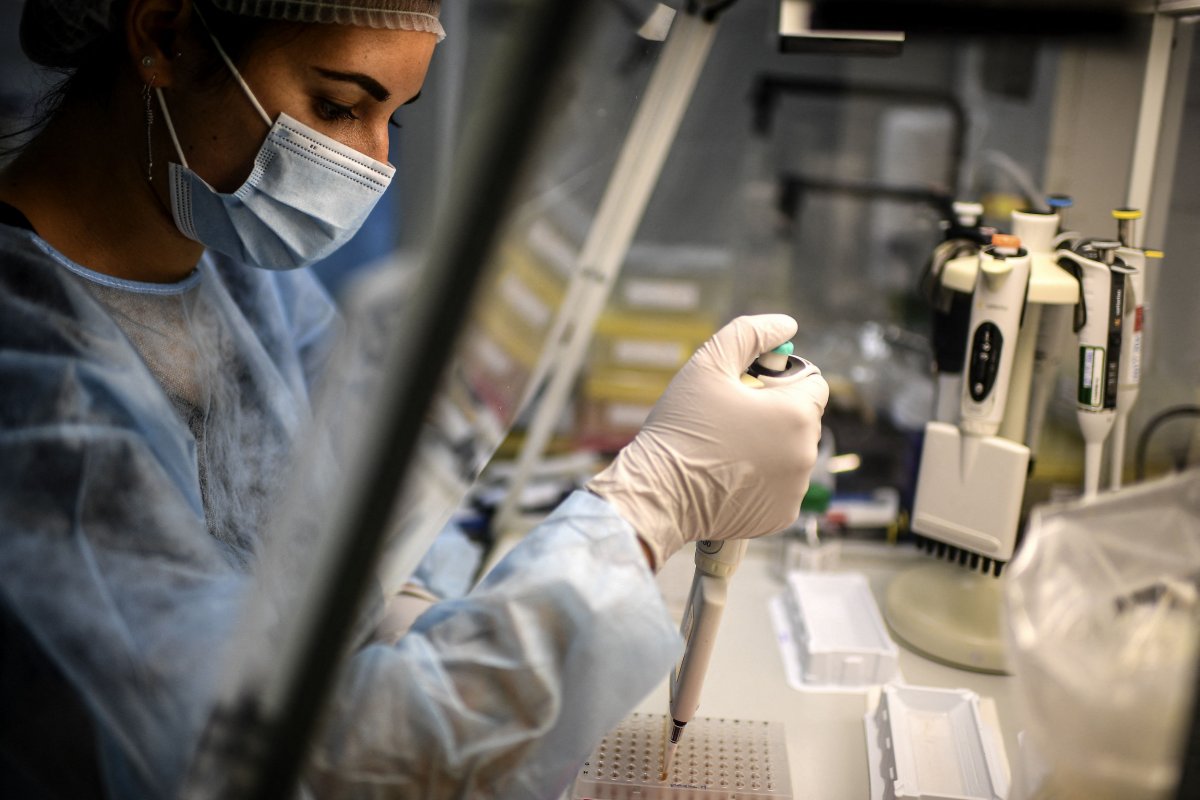A new mutated version of the COVID Delta variant spreading in the U.K. could be 10 percent more transmissible than Delta, researchers think.
However, it's too early to say whether this strain could be more evasive to immunity than Delta and it also doesn't appear to be taking over as fast as Delta did from Alpha.
The variant, which has been given the label AY.4.2, appears to have branched off from the Delta AY.4 sub-variant by gaining two mutations known as Y145H and A222V. Both have been seen before in previous COVID variants but at low frequencies.
Former FDA commissioner Scott Gottlieb has referred to AY.4.2 as 'Delta Plus'—a term which earlier this year was used to refer to a Delta variant with the K417N mutation. It's not clear whether the two are interchangeable.
In any case, according to Outbreak.Info—which uses virus sequencing data from the GISAID database—the variant took off in the U.K. some time around early July and has since accounted for between seven and eight percent of new sequenced samples.
Some 14,247 cases with this new variant have been reported in the country overall. It is a lot less widespread in the U.S.
AY.4.2 has been detected in California, North Carolina, and the District of Columbia, with three cases reported overall.
Scientists have begun to take note of AY.4.2. Francois Balloux, director of the Genetics Institute at University College London, tweeted over the weekend that the variant is possibly around 10 percent more transmissible than Delta based on its recent rise in the U.K.
To summarise, the recent rise in the UK of AY.4.2 would be compatible with a transmissibility advantage of ~10%. As such, it feels worthwhile keeping an eye on it. Though, based on its genetic make-up, it is not a priori an obvious VoC candidate.
— Prof Francois Balloux (@BallouxFrancois) October 16, 2021
8/
He added that "it feels worthwhile keeping an eye on it," though its characteristics at this stage do not necessarily mean it is a candidate for becoming a Variant of Concern.
"The emergence of yet another more transmissible strain would be suboptimal," Balloux said in a statement this week.
"Though, this is not a situation comparable to the emergence of Alpha and Delta that were far more transmissible—50 percent or more—than any strain in circulation at the time. Here we are dealing with a potential small increase in transmissibility that would not have a comparable impact on the pandemic."
Professor Christina Pagel is a mathematician at UCL who specializes in mathematical modeling for health purposes. She told Newsweek that the potential 10 percent transmissibility advantage of AY.4.2 "isn't great," but added: "I don't think there's a reason to think AY.4.2 is disastrous."
She said its advantage is "not nearly" as bad as the one that Delta had over Alpha that allowed it to dominate vast swathes of the planet.
"But the next substrain could be," she warned, adding that we can expect Delta to keep on mutating. The variant has already branched off into dozens of different types.
According to a technical briefing published by the U.K. Health Security Agency on October 15, AY.4.2 was "noted to be expanding in England" and an assessment had been launched.
It noted that the regular AY.4 Delta sublineage continued to be dominant in the country, however.
Correction 6:59 a.m. EDT 10/20/2021: This article and its headline have been updated to correct where AY4.2. has spread in the U.S. and how many sequences have been recorded in the U.K.

Uncommon Knowledge
Newsweek is committed to challenging conventional wisdom and finding connections in the search for common ground.
Newsweek is committed to challenging conventional wisdom and finding connections in the search for common ground.
About the writer
To read how Newsweek uses AI as a newsroom tool, Click here.








